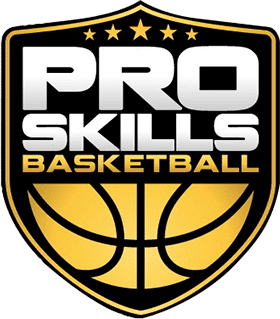
10 Warning Signs of a Crazy Youth Basketball Parent
For the past seven years, Pro Skills Basketball (PSB) has been fully immersed in the youth basketball world, growing from three AAU teams in Lake Norman, NC, to over 80 club teams across 5 U.S. cities. We’ve watched 3rd–5th graders evolve into high school athletes, and even college players—all thanks to focused fundamentals and supportive coaching.
Along the way, we’ve noticed one crucial factor separating those who thrive from those who burn out: the role of parents. In our experience, kids often plateau not because of talent, but due to unsustainable pressure from parents—often well-intentioned moms and dads who cross the line into “crazy basketball parent” territory.
Below, we share the top 10 warning signs of an overbearing basketball parent. Checking off one or two of these may be normal, but hitting seven or more can derail your child’s love of the game. Let’s dive in.
1. Transferring Schools for Basketball {#transferring-schools}
Moving your child to a school with a stronger basketball program can seem strategic, but constantly transferring middle or high schools—and switching AAU teams mid-season—can erode stability. While there are valid reasons to change programs, frequent moves may prioritize short-term wins over long-term skill development.
PSB Tip: Focus on local skill training and consistent coaching to build fundamentals, rather than chasing the “next big team.”
2. Reclassifying for Basketball {#reclassifying}
Reclassifying—repeating a grade to dominate younger, smaller peers—has become increasingly common. Some players even reclassify twice, graduating at 19! While extra time can boost physical development, it delays exposure to tougher competition.
PSB Tip: Encourage your child to challenge themselves against older competition. Our elite camps offer age-appropriate skill work without academic redshirting.
3. Obsession with Rankings {#rankings}
Paying for showcase camps just to earn a youth ranking may feed ego, but it rarely influences college scholarships. Coaches rely on comprehensive evaluations—game IQ, work ethic, and fundamentals—not a generic star rating.
PSB Tip: Invest in ongoing player development through consistent feedback and targeted drills, rather than one-off exposures.
4. Managing Social Media Accounts
Parents creating highlight-filled Twitter or Instagram profiles for 9th graders can backfire. Over-curated feeds reveal more about parental ambition than the player’s genuine progress.
PSB Tip: Keep social media fun and authentic. Share moments that reflect your child’s growth and passion, not just highlight reels.
5. Traveling to AAU Tournaments Early
Flying across the country for 4th-grade “nationals” often yields little long-term benefit. That week’s travel and tournament fees could fund local skill trainers or academic tutors, offering higher ROI.
PSB Tip: Consider our regional showcases or subscribe to local training programs for steady improvement.
6. Worrying About College Recruiting Before High School
Most college prospects start serious recruiting in 10th or 11th grade. Obsessing over scholarships in 7th or 8th grade distracts from daily growth. Help your child focus on mastering today’s skills instead of tomorrow’s scholarship offers.
PSB Tip: Our high-school-prep clinics introduce recruiting concepts at the right time, without pressuring middle school athletes.
7. Yelling at Refs or Coaches
Losing your cool on the sidelines—toward referees, coaches, or even your own child—models poor sportsmanship and stresses young athletes. Emotional maturity off the court fosters better performance on it.
PSB Tip: Represent positive sideline behavior. Our parent workshops teach constructive sideline etiquette.
8. Constantly Calling the Coach
Weekly or even monthly check-ins with coaches can overwhelm staff and undermine player-coach communication. Teach your child to address playing-time concerns directly, promoting accountability and resilience.
PSB Tip: Empower kids with communication skills at our Leadership & Life-Skills sessions.
9. Watching Every Practice
Smothering your child by attending every practice may signal trust issues. Kids need space to learn independently and build confidence without parental oversight.
PSB Tip: Try skipping one practice per month. Encourage your child to reflect on their performance with a journal provided in our training kits.
10. Forcing Extra Training
Mandating drills when your child’s enthusiasm wanes leads to burnout. Youth athletes thrive when they choose extra work, not when it’s imposed.
PSB Tip: Offer optional skill challenges—like our Seasonal Shooting Competitions—to spark intrinsic motivation.
Conclusion: Support, Don’t Smother
Checking off 1–3 of these signs? You’re probably a well-meaning parent. Hitting 4–6? Be mindful. At 7 or more, it’s time to step back and realign priorities. Remember, long-term development stems from balanced support, not extreme interventions.
Ready to find the right balance?
- Explore our Club Teams
- Sign up for a Youth Camp
- Join a Clinic
Ready to take the next step in your child’s basketball journey?
Pro Skills Basketball offers Club Teams, Camps, Clinics, and Academies in 25+ cities across the U.S. 👉 Find your city and sign up today to join a program focused on real development, experienced coaches, and a culture that puts players first.
📩 Contact us at admin@proskillsbasketball.com 📞 Call us at 866-996-3888



